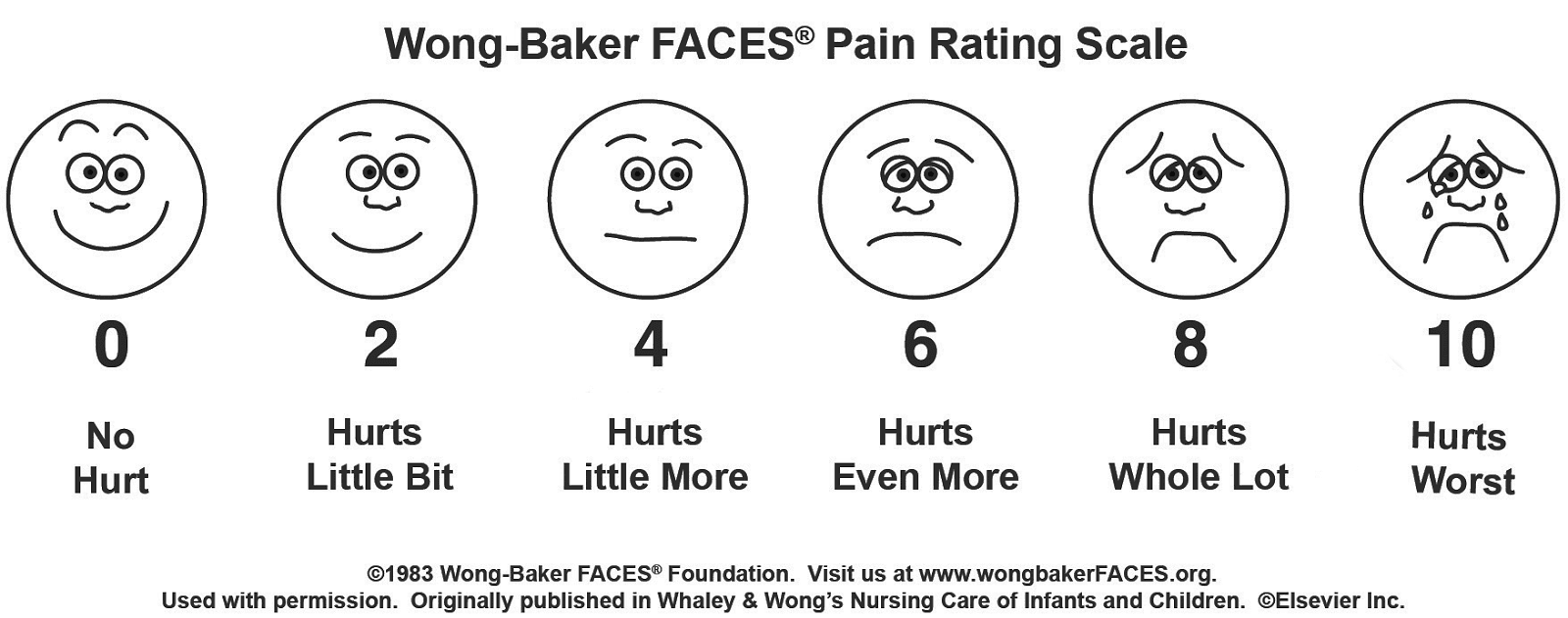Managing Pain

Let’s talk about pain and how to manage it in the hospital.
There are many different causes and kinds of pain. Pain can be caused by injury, illness, sickness, disease or surgery.
Managing your pain and comfort level is important because:
- having less pain helps you move around so that medical complications like pneumonia, pressure ulcers and blood clots do not develop
- your spiritual and emotional wellness can be affected by your pain
- you may heal and recover faster
Let’s talk about your pain.
Tell your doctor, nurse, physician assistant or nurse practitioner:
- if you were taking pain medicine before you came to the hospital
- what has worked to lessen your pain in the past
- if you ever had a bad reaction to any pain medicine
- if you have pain now
- if your pain medicine is not working (your medicine can be changed)
- if pain is preventing you from: taking a deep breath, turning in bed, walking to the restroom, getting restful sleep, getting out of bed, sitting in a chair, eating or any other self-care activities
Let’s talk about treatments besides medicine that can be used for pain.
- listening to music, watching television or reading (relaxation channels are available free of charge on your TV)
- relaxation exercises
- changing your position in bed or in a chair
- applying heat or cold (when approved by your doctor or nurse) to a specific place/area of your body
Here are some common words you can use to describe your pain:
- aching
- burning
- cramping
- freezing
- gassy
- gnawing
- heavy
- itching
- nagging
- nauseating
- pinching
- stabbing
- sharp
- shooting
- sore
- stiff
- tender
- throbbing
- tingling
Speak Up!
We want to partner with you to manage your pain. If you have concerns or questions about your pain treatment plan, feel empowered to ask a member of your care team.
Common Side Effects of Pain Medicines
Side effects depend on the medicine. They can include constipation, nausea, vomiting, itching and sleepiness. Tell your doctor or nurse if you have any of these side effects—many can be managed to make you more comfortable and safe.
Describe Your Pain
We will ask you to rate your pain on a scale from 0–10 with 0 being no pain and 10 being a lot of pain.
0 = No Pain
1 to 3 = Mild Pain
4 to 6 = Moderate Pain
7 to 10 = Severe Pain
Choose a face that best describes how you feel.

